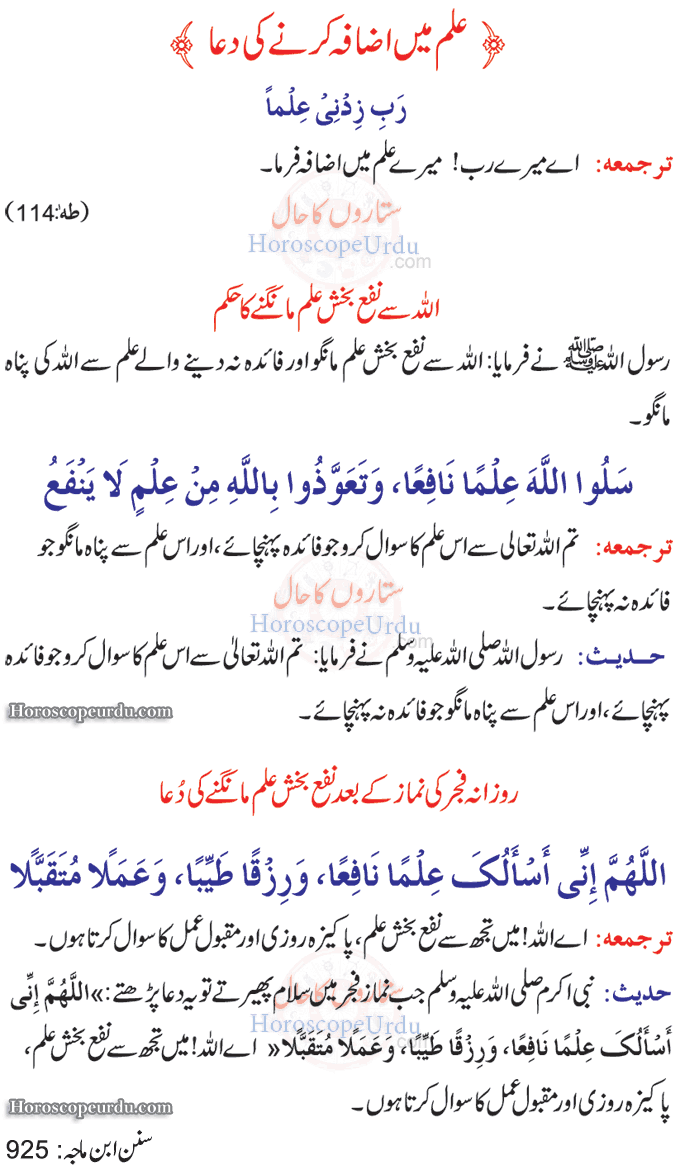While the Rasool (Peace and blessing of Allah be upon him) had been made the light and source of knowledge, he (PBUH) used to make Dua for knowledge. This fact reminds us that no one is ever perfect in knowledge... Read More...

Furthermore, Almighty Allah says in verse 255 of chapter 2 (Surah Al-Baqarah) of the Noble Quran, “And they (people) encompass not a thing of His knowledge except for what He wills”.
It means only Allah blesses one with knowledge and only to the extent He wills.
How would you tell the great from the ordinary? Knowledge is undoubtedly the marker that sets the noble apart from laymen. Here it is pertinent to recall the event that marked the creation of the human race.
A pious jinn, who had excelled even the angels in wordship, was declared Iblees (Shaitan) when he declined to bow to Hazrat Adam (Alaih-e-Salam) who had been bestowed with knowledge. It means possessing knowledge is superior to excelling in piety.
One should always make Dua for knowledge. But, at the same time, you should also be careful about the type of knowledge you are seeking. It must be “Ilman Naf-i-an”, i.e. the knowledge that benefits.
In Ibn-e-Maja, one of the six most authentic books of Ahadees Sharif, the Rasool (Peace and blessings of Allah be upon him) has been narrated as praying to Almighty Allah for an increase in his knowledge in the following words:
“O Allah! I ask you for knowledge which is beneficial, and sustenance which is pure and deeds which are acceptable.”
There is a popular Quranic Dua for knowledge given in verse 114 of chapter 20 (Surah Taha) of the Holy Quran. Here Allah Almighty teaches the prayer for an increase in what one knows in these words:
“Say, "My Lord, increase me in knowledge.””